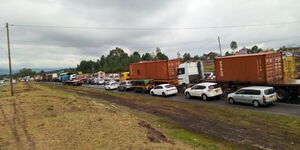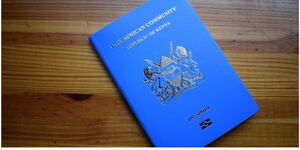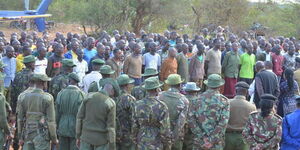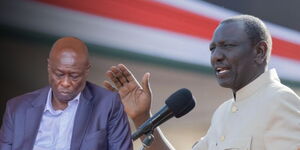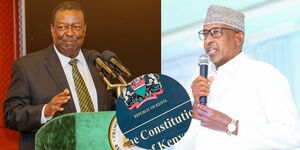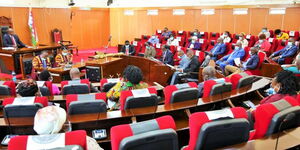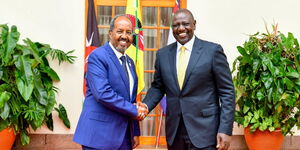With the rising threat of Mpox spreading across Africa, the Ministry of Health has unveiled an ambitious plan to secure two million vaccines by the end of the year.
The move, announced by Health Cabinet Secretary Deborah Barasa, is part of a broader strategy to curb the disease, which has already sparked widespread concern.
Barasa outlined that the vaccines would be prioritised for high-risk individuals, reflecting the government's targeted approach similar to the Covid-19 pandemic. “We are committed to ensuring that those most vulnerable are protected,” she stated, while urging Kenyans to rely on accurate information and avoid spreading unverified reports.
The urgency of the situation was underscored last week when the World Health Organisation (WHO) and the Africa Centres for Disease Control and Prevention (CDC) classified Mpox as a public health emergency.
In response, Kenya has not only ramped up its vaccine procurement efforts but also activated several emergency response measures.
Kenya’s first and only confirmed Mpox case was reported on July 31, involving a 42-year-old truck driver from Kiambu County. The patient, who had travelled through multiple East African countries, was detected at the Taveta border post. Following treatment, he has made a full recovery.
Mpox, caused by the monkeypox virus, is a zoonotic disease that can be transmitted from animals to humans and between people. It has been a persistent threat in Africa, particularly in the Democratic Republic of Congo, which has seen the highest number of cases.
With the disease now recognised as a global health emergency, the Ministry of Health has activated its Public Health Emergency Operation Centre and Incident Management System.
These bodies are tasked with coordinating the national response, while National Rapid Response Teams are providing technical support to counties.
Kenya is set to benefit from a Ksh2 billion fund, backed by international donors. The WHO has highlighted the immediate need for at least $15 million (Ksh1.9 billion in the current exchange rate) to support surveillance and response activities, with a significant portion earmarked for African nations.
Although Kenya has only confirmed one Mpox case, Health Director-General Patrick Amoth warned that the actual number might be higher due to underreporting. The country’s health infrastructure is gearing up for a potential surge in cases, with increased surveillance at points of entry and the establishment of dedicated laboratories for testing.
Amoth revealed that the government has already screened over 300,000 travellers and tested 29 suspected cases, all of which were negative. He emphasised that the government is prioritising vaccine availability for the most vulnerable groups due to the limited global supply.
Kenya is further bolstering its diagnostic capabilities with plans to sequence the Mpox variant present in the region. The government is also intensifying the training of healthcare workers to ensure early detection and effective management of the disease.
The Ministry of Health has reassured the public that rapid response teams are ready to handle any new suspected cases. Health CS Deborah Barasa reiterated that all counties have been instructed to activate their emergency response mechanisms, with 25 County Emergency Operation Centres currently operational.

